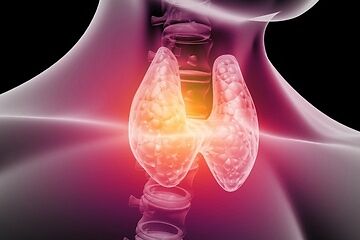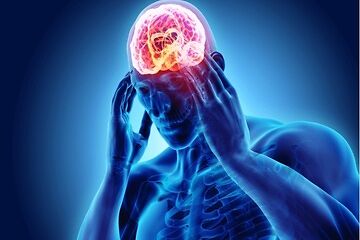What is Migraine?

Migraine is a headache that can cause severe throbbing pain or a pulsing sensation, usually on one side of the head.
Migraine attacks can last for hours to days, and the pain can be so severe that it interferes with your daily activities.
What are the signs and symptoms of Migraine?
It's often accompanied by nausea, vomiting, and extreme sensitivity to light and sound.
The possible signs that may help you out are:
- Visual phenomena, such as seeing various shapes, bright spots or flashes of light
- Vision loss
- Pins and needles sensations in an arm or leg
- Weakness or numbness in the face or one side of the body
- Difficulty speaking
- Pain that throbs or pulses
Immediately contact your doctor if you notice any such signs.
What are the causes of Migraine?
1.Hormonal changes in women. Fluctuations in estrogen, such as before or during menstrual periods, pregnancy and menopause, seem to trigger headaches in many women.
2.Drinks. These include alcohol, especially wine, and too much caffeine, such as coffee.
3.Stress. Stress at work or home can cause migraines.
4.Sensory stimuli. Bright or flashing lights can induce migraines, as can loud sounds. Strong smells — such as perfume, paint thinner, secondhand smoke and others — trigger migraines in some people.
Certain chronic conditions also may increase your risk of migraine, including imbalances in brain chemicals.
Diagnosis of Migraine
To diagnose migraine, your doctor will review your personal and family medical history, perform a thorough physical evaluation.
Some tests that are normally done are as:
- Magnetic resonance imaging (MRI). An MRI scan uses a powerful magnetic field and radio waves to produce detailed images of the brain and blood vessels. MRI scans help doctors diagnose tumors, strokes, bleeding in the brain, infections, and other brain and nervous system (neurological) conditions.
- Computerized tomography (CT) scan. A CT scan uses a series of X-rays to create detailed cross-sectional images of the brain. This helps doctors diagnose tumors, infections, brain damage, bleeding in the brain and other possible medical problems that may be causing headaches.
What are the complications of Migraine?
A few of the comorbidities you may face with Migraine are:
- Left untreated, Migraine may lead to serious medication-overuse headaches .Tell your doctor if your signs and symptoms aren't improving despite treatment for Migraine.
Prevention of Migraine
Preventing and treating illnesses that can become the risk factor for Migraine is the best way to curb out it's complications. Make sure to change a few of your lifestyle habits and do regular physical exercise (not intense one). Talk to your doctor and take the help of a dietician who can suggest a decent diet to avert Migraine. A diet is a healthy component of Migraine treatment in Ayurveda!






